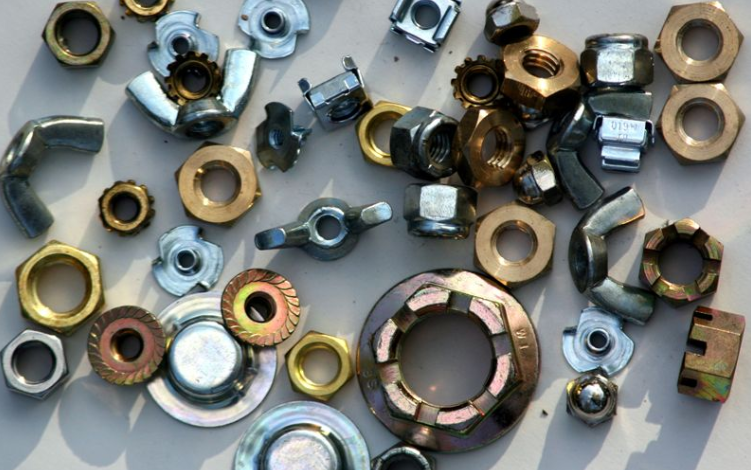Custom Nuts

Introduction to Custom Nuts
In the world of industrial manufacturing and construction, every component plays a critical role in ensuring strength, stability, and precision. One such crucial component is the nut. While standard nuts are used widely, there are situations where standard sizing, shape, or material doesn’t suffice. This is where custom nuts come into the picture. Custom nuts are specialized fasteners designed to meet specific application needs in a variety of industries, from aerospace to automotive to heavy machinery.
What Are Custom Nuts?
Custom nuts refer to nuts that are manufactured based on specific dimensions, shapes, thread types, materials, and tolerances required by the client. Unlike standard nuts, these fasteners are not off-the-shelf products. They are designed and produced to solve unique challenges or requirements where traditional fasteners fall short.
Whether it’s a high-temperature environment, high-stress load, or non-standard threading requirement, custom nuts provide the flexibility that engineers and manufacturers often need to achieve reliability and safety in their projects.
Industries That Use Custom Nuts
Several industries rely heavily on the availability and precision of custom nuts. Some of the most common ones include:
Aerospace
Aircraft manufacturing demands extremely precise and lightweight components. Custom nuts used here are often made from titanium or aerospace-grade alloys that can endure intense stress and extreme environmental conditions.
Automotive
In automotive manufacturing, especially for performance and racing vehicles, custom nuts are essential to ensure proper torque, vibration resistance, and durability. Custom sizing and materials help meet design and performance requirements.
Construction
Heavy equipment, cranes, bridges, and infrastructure custom nuts projects often require custom nuts to manage enormous loads and withstand outdoor environmental conditions for decades.
Oil and Gas
Custom nuts used in offshore rigs or deep drilling equipment must resist corrosion, high pressure, and temperature extremes. Stainless steel, Inconel, and other specialized materials are typically used.
Renewable Energy
Wind turbines and solar panel mounts are exposed to fluctuating weather conditions and vibrations. Customized fastening solutions help increase their longevity and reduce maintenance.
Materials Used in Custom Nuts Manufacturing
The material choice for custom nuts depends largely on the application they are intended for. The most commonly used materials include:
- Carbon steel
- Stainless steel
- Brass
- Aluminum
- Titanium
- Inconel
- Monel
Each material offers different properties, such as corrosion resistance, strength-to-weight ratio, and machinability, making it important to choose the right one for the intended environment and load conditions.
See also: Available Business Assistance: 192.168.31.228.8080
Types of Custom Nuts
Depending on the design and requirements, custom nuts can come in various types:
Hex Nuts
One of the most common nut types, hex nuts can be customized in size, thread type, or material.
Lock Nuts
Custom lock nuts are used where vibration or movement is a concern, ensuring the nut stays tightly fastened.
Wing Nuts
These are ideal for applications requiring manual adjustment. They can be customized in shape and size for ergonomic handling.
Cap Nuts
Also known as acorn nuts, they are used where aesthetics and protection from external threads are needed.
Slotted Nuts
These are often used in conjunction with cotter pins to provide secure locking, especially in automotive or mechanical assemblies.
Customization Capabilities
Custom nuts can be tailored in several aspects, including:
- Thread pitch and type (coarse, fine, metric, UNF, etc.)
- Shape (hexagonal, round, square, etc.)
- Finish (zinc-plated, anodized, powder-coated)
- Tolerance levels
- Mechanical properties (strength, elasticity)
- Special coatings for anti-corrosion or conductive properties
Benefits of Using Custom Nuts
Opting for custom nuts can offer several practical advantages in demanding industrial settings:
Enhanced Performance
By tailoring the nut to the specific needs of the assembly, you can ensure better load distribution, fit, and mechanical performance.
Improved Durability
Special materials and finishes can be used to improve corrosion resistance, thermal stability, and fatigue life, especially in harsh environments.
Reduced Risk of Failure
Using standard fasteners in non-standard applications can lead to mechanical failure. Custom solutions reduce this risk significantly.
Cost Efficiency in the Long Run
While the initial cost may be higher, using properly designed fasteners can reduce downtime, repairs, and part replacements over time.
How to Choose the Right Custom Nuts Manufacturer
When seeking a reliable provider for custom nuts, there are a few critical factors to consider:
Experience and Specialization
A manufacturer with extensive experience in producing customized fasteners is more likely to understand complex specifications and quality requirements.
Quality Assurance and Standards
Ensure the manufacturer complies with global standards like ISO, ASTM, or DIN, and offers documentation such as material certificates and inspection reports.
Design Support
Some applications require advanced design and engineering support. Manufacturers that offer prototyping or CAD modeling can save both time and cost.
Delivery and Volume Capability
Depending on your project timeline, ensure the manufacturer can deliver both low and high-volume batches without compromising on quality or lead time.
Applications of Custom Nuts
The versatility of custom nuts allows them to be used in both critical and non-critical applications. Some examples include:
- Automotive engine assemblies
- Aircraft fuselage and wings
- Military and defense systems
- Wind turbine bases
- Offshore oil platforms
- Construction beams and girders
- Agricultural machinery
Conclusion
Custom nuts are more than just modified versions of standard fasteners. They play a vital role in ensuring mechanical reliability, safety, and performance across a wide range of industries. With the ability to meet unique design requirements, resist extreme conditions, and optimize performance, they are essential components for modern engineering challenges.
Whether you are involved in a high-performance automotive project, an aerospace design, or a massive construction venture, working with a reliable custom nuts manufacturer can be the difference between success and failure. Carefully selecting materials, thread types, and coatings tailored to your needs ensures a longer-lasting, secure, and efficient solution to fastening problems that standard nuts simply cannot address.





